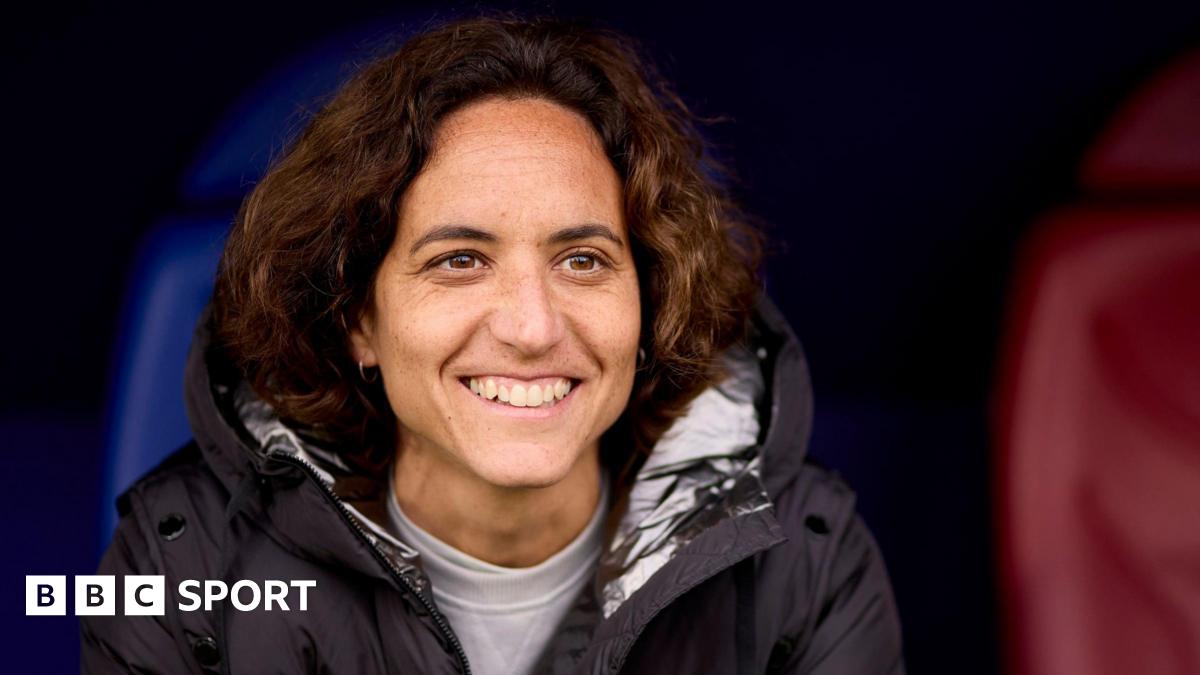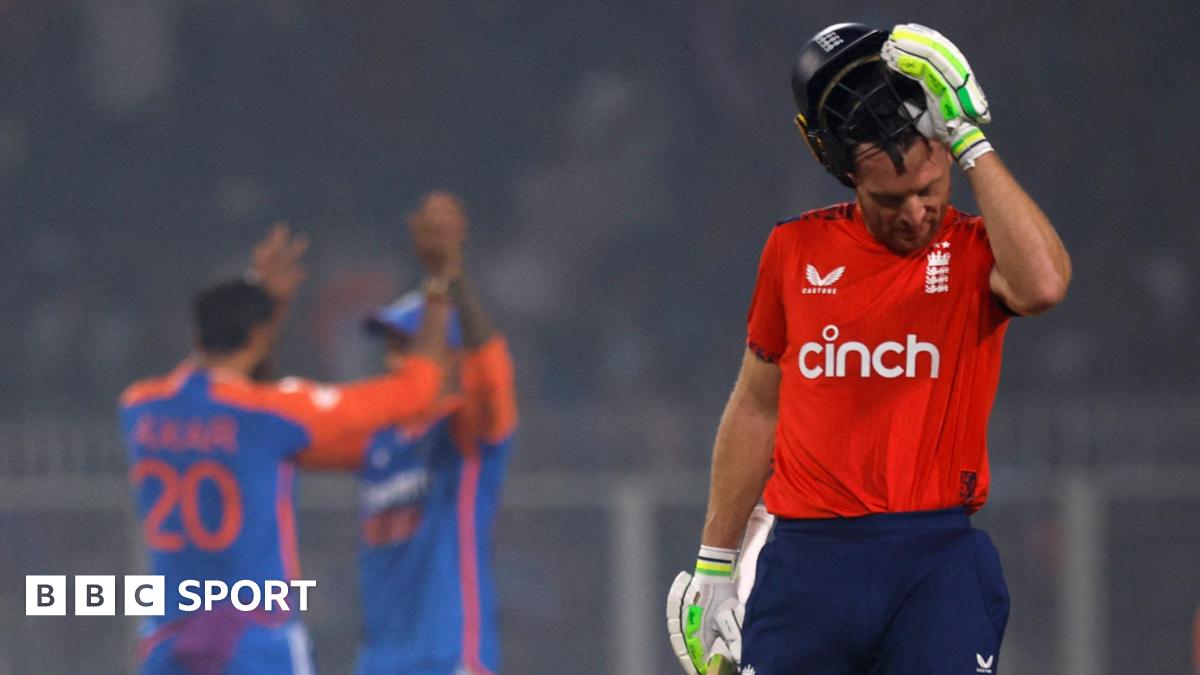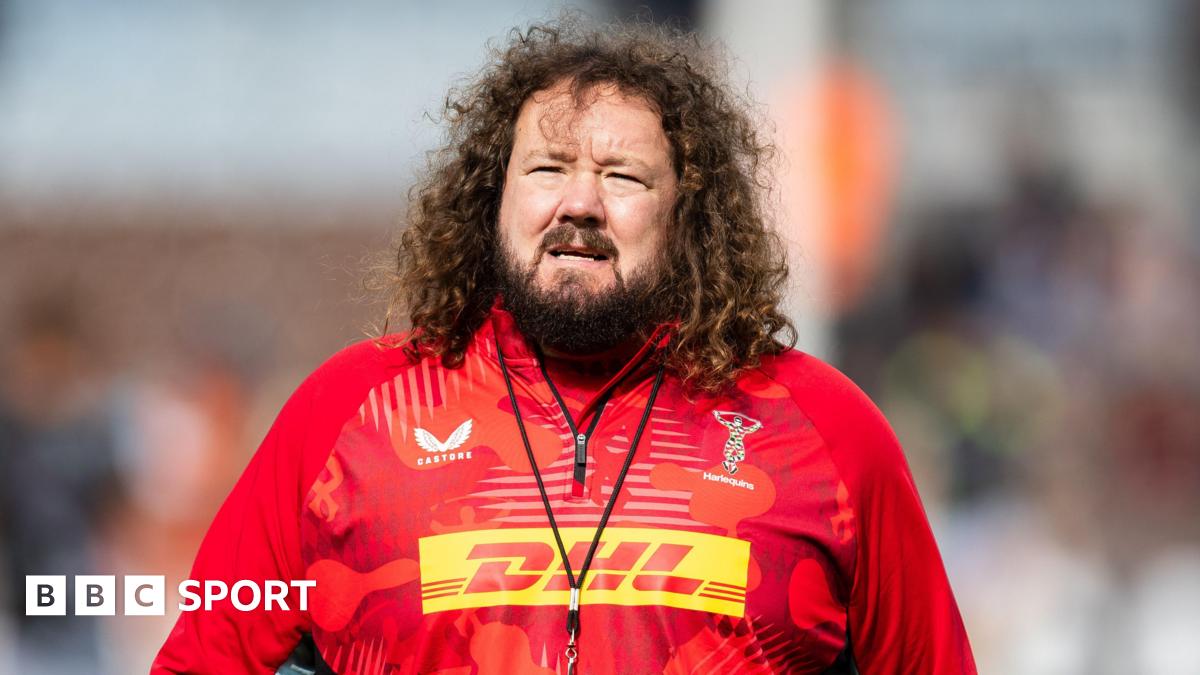ARTICLE AD BOX
Champions League: All you need to know about the new format
The Champions League gets under way on Tuesday - and you will be able to watch highlights of every game on the BBC.
From 22:00 BST on the Wednesday of Champions League matchweeks, there will be game-by-game highlights available on BBC iPlayer and the BBC Sport website and app - plus a highlights show on BBC One at 22:40.
With the first set of fixtures spread across three days instead of two, there will even be a bonus highlights show on Thursday on BBC Two at 23:05.
The new show is hosted by Mark Chapman and Gabby Logan, with Jason Mohammad also presenting during the first week.
They are joined by a line-up of experts. Former Manchester City and Celtic goalkeeper Joe Hart, former Arsenal forward Theo Walcott, ex-Aston Villa, Bayern Munich and Stuttgart midfielder Thomas Hitzlsperger and former Manchester City captain Steph Houghton are all on punditry duties.
Alongside them are our analysts - Nedum Onuoha and Stephen Warnock - whose job it will be to spot the tactical trends and hidden moments from the week.
Every Tuesday and Wednesday BBC Radio 5 Live’s commentary and goals service will keep fans up to date via BBC Sounds and Champions League Final Score on BBC iPlayer.
There will also be clips online and on social media, as well as live text commentary on every night of action on the BBC Sport website.
And that's not the only thing that's new about the Champions League in 2024-25.
With a completely different format to get to grips with, including more teams and games than ever before, read on to find out everything you need to know about this year's competition.
What is the new Champions League format and how does it work?
From this season, a new format will be in play after Uefa approved the changes in May 2022.
It is the first time since 1992 that Europe's elite competition has seen such a revamp.
In recent years, the group stage has been set up with 32 teams in eight groups of four - with the top two sides from those groups qualifying for the last 16.
However, from this season an expanded 36-team tournament sees each side play eight games - four at home and four away - in a league phase, against two opponents from each of the four seeding pots.
Teams who finish in the top eight will qualify automatically for the last 16, while those who place ninth to 24th will compete in a two-legged knockout play-off for the chance to join them.
Whoever finishes 25th or lower will be eliminated, and will not be entered into the Europa League.
What about the knockout stages?
From the last 16 onwards, the Champions League will continue to follow its previous format, with a series of two-legged knockout games culminating in the final on Saturday, 31 May. As was the case last season, there will be no away goals rule in play.
This season, the final will take place at Bayern Munich's Allianz Arena.
How many British teams are in the Champions League?
For Premier League clubs, the top four from last season are competing in the Champions League, with the fifth-placed team in the Europa League.
That means Man City, Arsenal, Liverpool and Aston Villa are in the elite club knockout competition in 2024-25.
Fifth-placed Tottenham had to settle for the Europa League, along with FA Cup winners Manchester United. Chelsea are in the Conference League.
From Scotland, Premiership champions Celtic are in the Champions League, but Rangers were beaten by Dynamo Kyiv in qualifying and have to settle for a spot in the Europa League instead.
Who will the British sides be playing?
Aston Villa
Young Boys (A -17 September, 17:45)
Bayern Munich (H - 2 October, 20:00)
Bologna (H - 22 October, 20:00)
Club Brugge (A - 6 November, 17:45)
Juventus (H - 27 November, 20:00)
RB Leipzig (A - 10 December, 20:00)
Monaco (A - 21 January, 17:45)
Celtic (H - 29 January, 20:00)
Arsenal
Atalanta (A - 19 September, 20:00)
Paris St-Germain (H - 1 October, 20:00)
Shakhtar Donetsk (H - 22 October, 20:00)
Inter (A - 6 November, 20:00)
Sporting (A - 26 November, 20:00)
Monaco (H - 11 December, 20:00)
Dinamo Zagreb (H - 22 January, 20:00)
Girona (A - 29 January, 20:00)
Celtic
Slovan Bratislava (H - 18 September, 20:00)
Borussia Dortmund (A - 1 October, 20:00)
Atalanta (A - 23 October, 17:45)
RB Leipzig (H - 5 November, 20:00)
Club Brugge (H - 27 November, 20:00)
Dinamo Zagreb (A - 10 December, 17:45)
Young Boys (H - 22 January, 20:00)
Aston Villa (A - 29 January, 20:00)
Liverpool
AC Milan (A - 17 September, 20:00)
Bologna (H - 2 October, 20:00)
RB Leipzig (A - 23 October, 20:00)
Bayer Leverkusen (H - 5 November, 20:00)
Real Madrid (H - 27 November, 20:00)
Girona (A - 10 December, 17:45)
Lille (H - 21 January, 20:00)
PSV (A - 29 January, 20:00)
Manchester City
Inter Milan (H - 18 September, 20:00)
Slovan Bratislava (A - 1 October, 20:00)
Sparta Prague (H - 23 October, 20:00)
Sporting (A - 5 November, 20:00)
Feyenoord (H - 26 November, 20:00)
Juventus (A - 11 December, 20:00)
Paris St-Germain (A - 22 January, 20:00)
Club Brugge (H - 29 January, 20:00)
You can see the full list of games on our Champions League scores and fixtures page here
Image source, Getty Images
Image caption,Manchester City were the last British side to win the Champions League, beating Inter Milan in the final in 2023
How many more games will be played and when will they be played?
The number of matches in the new format will increase from 125 to 189.
Each team will play a minimum of eight - instead of six - and a maximum of 17.
In standard weeks, Champions League matches will still be played on Tuesdays and Wednesdays.
In the Champions League exclusive weeks - when no other European competitions are played - games will be played across Tuesday, Wednesday and Thursday.
The league phase will now finish at the end of January instead of during December.
What's the full list of teams playing in the Champions League?
Germany (5): Bayer Leverkusen, Stuttgart, Bayern Munich, RB Leipzig, Borussia Dortmund
Italy (5): Inter Milan, AC Milan, Juventus, Atalanta, Bologna
England (4): Man City, Arsenal, Liverpool, Aston Villa
France (4): Paris St-Germain, Monaco, Brest, Lille
Spain (4): Real Madrid, Barcelona, Girona, Atletico Madrid
Austria (2): Sturm Graz, Salzburg
Netherlands (2): PSV Eindhoven, Feyenoord
Portugal (2): Sporting Lisbon, Benfica
Belgium (1): Club Bruges
Croatia (1): GNK Dinamo
Czech Republic (1): Sparta Prague
Scotland (1): Celtic
Serbia (1): Crvena Zvezda
Slovakia (1): Slovan Bratislava
Switzerland (1): Young Boys
Ukraine (1): Shakhtar Donetsk
How do the coefficient places work?
Germany and Italy are the nations to have secured a fifth automatic spot in this season's tournament.
The coefficient places, otherwise known as European performance spots, go to the associations who have the best collective performance by their clubs in the previous season.
Italy have five representatives in Europe's premier competition after Atalanta won the Europa League.
The winners of both tournaments qualify automatically for the following season's Champions League.
What are the rules on squads for Uefa competitions?
Each club competing in any Uefa competition must submit two lists of players.
On 'List A', clubs can submit a maximum of 25 players, with eight places reserved exclusively for "locally-trained players", also known as homegrown players.
These eight must be made up of at least four "club-trained" players and a maximum of four "association-trained" players.
According to Uefa regulations, players who meet the "club-trained" criteria must have been on the club's books, irrespective of the player's nationality and age, for at least three years between the ages of 15 and 21.
An "association-trained" player is someone that has played in the same country as the club they are currently at for three years, irrespective of the player's nationality, between the ages of 15 to 21.
On List B, a club can register an unlimited number of players for the 2024-25 season as long as they are born on or after 1 January 2003.
The List A squads for the 36 Champions League league phase contenders were submitted on Tuesday, 3 September, while List B players must be submitted no later than 23:00 BST the day before each match.
Uefa also states that a player who has played during any of the qualifying rounds prior to the group stage of the Champions League, Europa League or Conference League can play in those competitions for another club from the league phase.
How has the Champions League format changed over the years?
Europe's most notable football competition began during the 1955-56 season as only a six-team invitational tournament, initially known as the European Champion Clubs' Cup.
From 1967, the competition grew to 32 teams, was called the European Cup and featured four two-legged rounds prior to a single-match final - this model would last for more than 20 years.
The Champions League as we know it began in 1992.
A group stage was added with the last 16 entering a knockout phase.
There was a brief spell with two group stages, but this was reverted back to the single group-stage format for the 2003-04 tournament.
Are the Europa League and Europa Conference League changing too?
Yes. Both competitions see similar changes to those of the Champions League this season.
The Europa League now follows the same format as the Champions League.
Europe's third-tier competition, the Europa Conference League, has been rebranded as the Uefa Conference League and teams play six matches against six different opponents in the league phase.
Both the Europa League and Conference League also feature 36 teams.

 4 months ago
18
4 months ago
18








 English (US) ·
English (US) ·